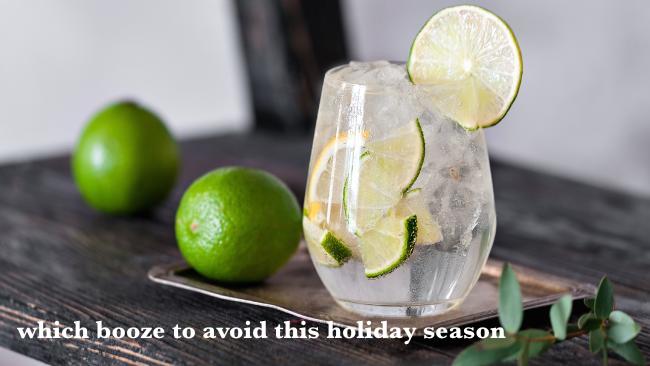
Beta-Glucans in Medicinal Mushrooms: The Healing Compound You Should Know About
In the world of tonic herbs and medicinal mushrooms, there’s

Kick-start, energise, rejuvenate
All carefully planned and prepared to help nourish, reset and rejuvenate the body and mind.

Party season is coming up. December is a busy time of the year for many of us.
Many of the gatherings we attend involve alcohol. Even many health advocates have drinks now and then.
So is drinking alcohol bad for you?
I have seen a few studies showing benefits of drinking moderately (moderate is the word here.) Personally I believe it depends on your individual tolerance and thing about resveratrol? I dont buy into this. You’d need hundreds of bottles of red wine to get the amount of resveratorol that may be beneficial.
If you are drinking alcohol for a health reason then I feel there are other things that are much better to do than drinking without side effects. However there may be times that you want a drink, right? Hey, who am I to judge you here.
let’s start with what to drink.
Some alcohol have a lot more toxins than others. It looks like distilled alcohol has less toxins. listed below, better to worse.
vodka
gin
tequilla
whisky
other spirits including sake
dry cider
dry (real) champagne
dry white wine
darker liqueurs
coloured, sweetened spirits
red wine
beer and lager
* congeners are found in higher amounts in darker liquors such as brandy, whisky and wine. They are thought to make your hangover symptoms worse. they act as free radicals and can massively disrupt your PH level. It is better to stick with clear spirit.
*tannins and preservatives (especially sulphites) found in wine are another hang-over inducer.
1. HYDRATE
When you drink your body loses more water. That is because your pituitary glad produces less anti-diuretic hormone so you lose more water. At the same time your kidney starts secreting an enzyme called renin and a hormone called aldosterone, which make your body hold onto sodium and lose potassium.
It is a really good idea to keep up with your water intake before, during and after drinking. It is even better to drink something with electrolyte and potassium (great example would be coconut water)
mega hydrate – powerful anti-oxidant and super-hydration right into the cells.
2. LOOK AFTER YOUR LIVER
Your liver works extra hard metabolising alcohol. There are herbs and foods that can assist liver’s workload. Your liver is converting etnanol into acetaldehyde ( hang over causing metabolite)
dandelion – well known for liver detox and cleansing
milk thistle – helps with detoxification of poisons such as alcohol, regeneration of damaged liver tissue
chanca piedra – Amazonian herb known to soothe the liver, stimulates the liver to purge itself of harmful toxins and foreign particles
beetroot -beets work to thin the bile and this, in turn, flushes out the liver.
turmeric – curcumin in turmeric can stimulate an enzyme to flush out toxins.
garlic – sulfer in garlic can help release toxins from the liver
lemon – high in vitamin C and can stimulate liver’s function
* vitamin C – alcohol may deplete your body of vitamin C. Vitamin c is also needed to reduce oxidative stress in the liver and can help detoxify
3. DETOX
vitamin C (see above)
Activated charcoal
zeolite
pure detox
fulvic acid
4. EAT BEFORE AND AFTER
If your stomach is empty alcohol gets absorbed more rapidly into your body. it can also disrupt your stomach lining. You need nutritious foods to replenish and protect.
Other supplementsyou may like to try
N-acetyl cysteine ( which can help increase glutathione and reduce the acetaldehyde toxicity)
vitamin B (works better when combined with NAC, especially vitamin B6 can help to lessen hangover symptoms)
magnesium (anti-inflammatory )
Hydrogen water – Molecular Hydrogen can cross the blood-brain barrier to reduce inflammation, improve the function of the brain cells and produce energy more efficiently. Combat the oxidative stress with the smallest yet the one of the most powerful antioxidants.
hydrogen tablets here or hydrogen water generator here
If you are using these tips hopefully it is not too often. We do need to be aware what alcohol can do to our body. It is a neurotoxins that can affect your metabolism, hormones and your well beings. What is moderate intake differs person to person. Having a drink now and then as part of health lifestyle probably does not cause much damage. However it is important to look over your relationship with any substance including alcohol. If you feel that it rules your life instead of you are in control of it then it does not matter how little you are actually drinking.
I have shared this information with
if you wanted to read there 🙂

In the world of tonic herbs and medicinal mushrooms, there’s

As the days grow shorter and the air becomes crisp,

Marine phytoplankton, the microscopic organisms that form the foundation of
Copyright Shoku Iku © 2024 | All Rights Reserved.
The statements on this website have not been evaluated by the TGA or FDA. These products are not intended to diagnose, treat, cure or prevent any disease.
Sign up to receive your discount.